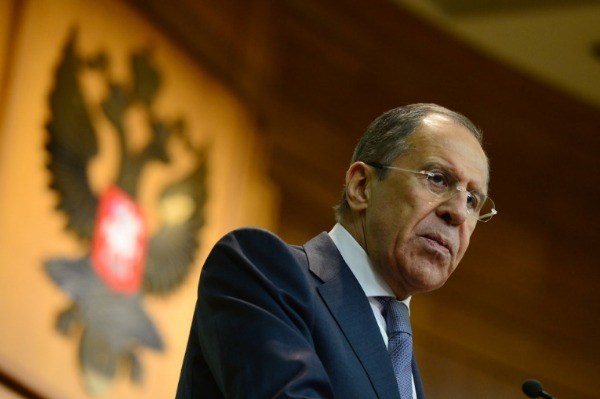Lavrov: Russia’s talks with U.S. on ‘security guarantees’ will happen in new year
Russian Foreign Minister Sergey Lavrov announced the approximate timing of the negotiations with the United States on security issues. "The United States, of course, is our main negotiator. And it is with the United States that we will carry out the main work of the negotiations that will take place immediately after the end of the New Year holidays," he said in an interview with the YouTube channel Solovyov LIVE.
Lavrov also stressed that not only diplomats, but also high-ranking Russian military will participate in the negotiations. "Negotiations will be conducted by interdepartmental delegations with the participation of the Foreign Ministry, with the participation of the military," he said.
Earlier, U.S. Ambassador to Russia John Sullivan said that the U.S. expects to begin negotiations with Russia on security claims in January but is not yet ready to name the exact date. "I'm not ready to tell you a specific date or place. I know that in Brussels and elsewhere we are discussing what our approach should be, whether it is within the framework of the meeting of the NATO-Russia Council or at the OSCE, or within the framework of the ongoing Dialogue on Strategic Stability," he said in an interview with the Russian newspaper Kommersant, answering a question about whether negotiations on security guarantees could take place in early January.
In addition, "the U.S. Secretary of State Antony Blinken said that we are not going to conduct negotiations concerning the security of Ukraine, at which Ukraine itself would not be represented," Sullivan said. "Similarly, the United States does not intend to conduct discussions about the security of our NATO allies without their participation," the US ambassador to Russia explained.
On December 17, the Russian Foreign Ministry published on its website proposed agreements with the United States and NATO on "security guarantees." They imply not only the rejection of further expansion of NATO and Ukraine's accession to the Alliance, but also a proposal not to deploy additional troops and weapons outside the 1997 borders, that is, until the accession of Eastern European countries to NATO. Russia also demanded that NATO stop "any military activities on the territory of Ukraine, as well as other countries of Eastern Europe, Transcaucasia and Central Asia" and not to deploy medium-range and shorter-range missiles at positions from which they can hit the Russian territory.
Moscow also called on Washington not to deploy weapons and military where it could pose a threat to Russia’s national security, to refrain from flying heavy bombers near Russian airspace and from the presence of warships close to Russian territories waters. In addition, the U.S. should not deploy nuclear weapons outside its territory, remove weapons already deployed, and dismantle related infrastructure.
Russia's demands sparked a skeptical reaction in the West. Both the United States and NATO have said that dialogue with Moscow on security guarantees is possible only in conditions of de-escalation near the borders of Ukraine and in coordination with European allies and partners. The alliance is ready to negotiate with Moscow within the framework of the meeting of the NATO-Russia Council, which may be held in mid-January.
In turn, Russian President Vladimir Putin warned the United States and NATO against rejecting Moscow's proposals. On the TV channel "Russia 1" on December 26, when asked what Russia could do in this case, Putin said: "It depends on the proposals that our military experts will make."
